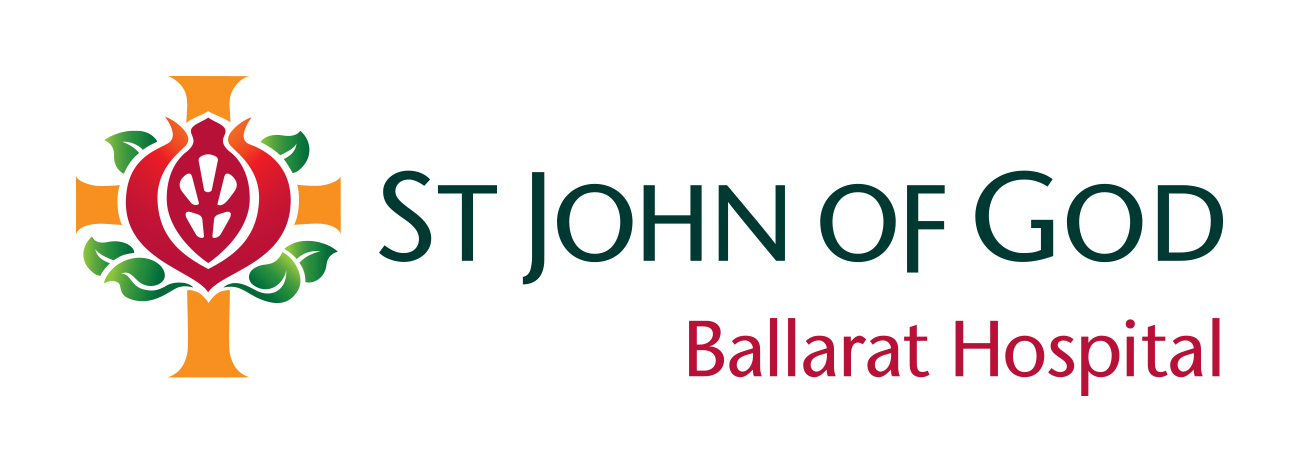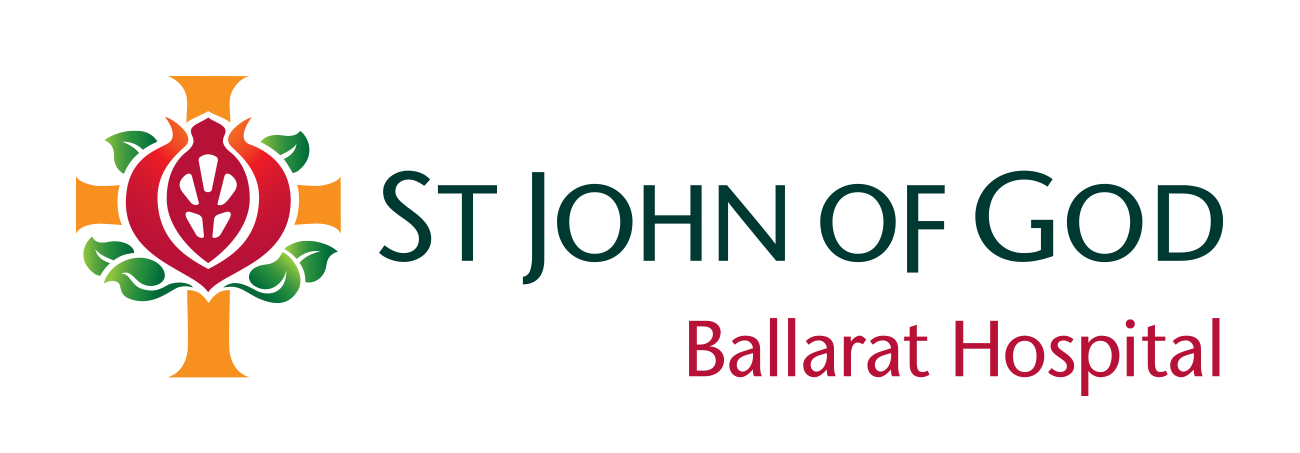- Our services
- Emergency Department
 Our services
Our services
- Emergency Department
- Medical and surgical
-
- Allied health
- Cardiac rehabilitation
- Chronic pain management
- Exercise physiology
- Falls prevention and balance
- Hydrotherapy
- Inpatient rehabilitation
- Neurological rehabilitation
- Occupational therapy
- Oncology rehabilitation
- Orthopaedic rehabilitation
- Outpatient rehabilitation
- Parkinson's disease
- Physiotherapy
- Pulmonary rehabilitation
- Reconditioning
- Speech pathology
- Stroke rehabilitation
- Community and youth
- Healthcare at Home
Emergency Department
Our Emergency Department is open 24 hours a day, 7 days a week and is accessible via Mair Street.
Coronavirus precautions
If you have visited one of the potential exposure locations please DO NOT present to the St John of God Ballarat Private Emergency Department.
We respectfully request that visitors or those accompanying you to hospital do not enter our buildings if they fit this criteria.
If you are seeking assistance, or testing for Coronavirus (COVID-19), please visit your nearest COVID-19 clinic; or contact your GP.
Our services
We provide adult and paediatric emergency services to patients with short waiting times and care provided by experienced nurses, doctors and specialists using the latest technology.
Our Emergency Department is a private facility and fees do apply.
What to do in an emergency?
If you have a life-threatening medical condition, call 000 and ask for an ambulance. You can request paramedics to bring you to our hospital.
If you have an urgent medical condition you can also come to our Emergency Department. If possible please bring with you:
- your Medicare Card
- any other entitlement cards (health care, pension, veterans, safety net)
- your passport/health insurance details (overseas visitors/students)
- private health insurance details
- a list of your current medications
- any X-rays/ultrasounds/scans that may be related to your condition
- your employment contact details if your condition is covered by Workers’ Compensation
- the name of your General Practitioner (GP).
You will be seen as soon as possible, according to the severity of your illness, and not in order of attendance. If another patient comes to the Emergency Department with a more serious condition, you may be required to wait. We thank you for your patience and understanding.
When you arrive
Please see the triage nurse first. They will ask questions and assess your condition to determine your level of priority:
- immediate (life threatening)
- very urgent
- urgent
- standard
- non-urgent.
You may need to be taken straight into the department or directed to the waiting room.
While you are waiting, please inform the triage nurse if your condition changes or you decide to seek treatment elsewhere.
What happens next?
Once you are inside the Emergency Department, our nurses and doctors will complete a thorough assessment of your conditions.
Tests and procedures will be carried out when necessary. The team will review your test results and provide emergency treatment, and will then decide to either:
- allow you to return home with a referral for further care if necessary (such as a follow-up appointment with your local doctor or an outpatient appointment)
- monitor your condition for a few hours before making a decision regarding your care
- admit you to hospital for further care*.
*if you require hospital admission, you will need private health insurance with hospital cover to be admitted to our hospital. If you do not have private health cover, the emergency department doctors and nurses will arrange for you to be transferred to the most appropriate public hospital.
Sometimes you may need to wait for test results or for a ward bed to become available. We will continue to care for you until you are able to go to a ward or be discharged home.
What fees will have I to pay?
Our Emergency Department is a private emergency facility and an out-of-pocket fee of $275 applies to most visits. We bill Medicare directly for doctors’ procedures and consultations. A $85 fee is charged for any subsequent Emergency Department visits within seven days for the same condition.
Please note:
- private health insurance and Medicare do not cover the out-of-pocket fee
- Department of Veterans’ Affairs will cover the Emergency Department fees if you are a gold card holder
- we request payment of all costs, including the Medicare portion of your visit prior to leaving. Payment can be made via credit card or EFTPOS.
Other fees – X-ray, imaging, pathology (blood tests), crutches
Fees for services such as X-rays, Lake Imaging, Australian Clinical Labs pathology (blood tests) and walking aids, usually incur additional out-of-pocket costs. The service provider will send you an additional account for these services.
You may be able to claim some fees for diagnostic services (blood tests and X-rays) from Medicare.
Do I have to pay for ambulance transfers?
If we are not able to admit you into our hospital or specialised treatment is needed, you may need to be transferred to another facility by ambulance.
You will be charged by the ambulance service for this transfer. If you have private health insurance you may be covered for ambulance transfer between hospitals. Ambulance transfer is not covered by Medicare, a Healthcare card, Pharmaceutical or Pensioner Benefit Card.
You may be interested in...
